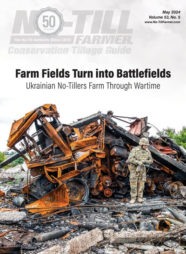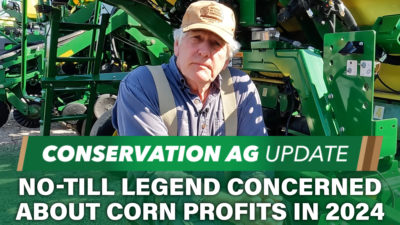By Curtis Thompson, Extension Agronomy State Leader and Weed Management Specialist
A major hurdle has been overcome in getting the new herbicide for ALS-resistant Inzen sorghum on the market. The EPA recently announced the registration approval of the dry formulation of the active ingredient nicosulfuron for use on Inzen sorghum hybrids. This is a supplemental label. A new liquid formulation of nicosulfuron called “Zest” should be labeled for use on Inzen sorghum in the next few months.
For now, the key development is that the active ingredient nicosulfuron now has a registration for Inzen sorghum. As a result, we are well on our way to having this new technology approved and ready for on-farm use.
Inzen sorghum hybrids are being actively developed by DuPont Pioneer and Advanta. Other sorghum breeding companies may also license the technology from DuPont and must work through DuPont’s agreement prior to commercialization of hybrids. Hybrid availability is extremely limited in 2016 and will likely be on a demonstration basis only.
K-State also has an active and very successful sorghum breeding program, and has developed excellent inbred lines. Experimental ALS-resistant hybrids developed internally from these inbred lines have been among top-yielding hybrids in K-State breeding tests. Interested sorghum companies can get more information on the availability of these ALS-resistant inbreds by contacting K-State sorghum breeder, Dr. Tesfaye Tesso at ttesso@ksu.edu
As new hybrids become available growers will have the opportunity to use this technology. The herbicide label and information included when purchasing Inzen sorghum seed will discuss best management practices to ensure the long-term viability and sustainability of this technology. A seed agreement will have to be signed when buying Inzen sorghum hybrids.
In grain sorghum, Zest can control volunteer sorghum, small annual grasses such as volunteer wheat, witchgrass, barnyardgrass, the foxtails, and crabgrass. Remember, Zest is not glyphosate. Zest must be applied to very small grasses. Generally Zest may provide poor control of grassy sandbur and stinkgrass unless these grasses are very, very small at the time of application. A complete list of grasses controlled is provided in the Zest label.
It is strongly encouraged that growers using this technology begin with the use of pre-emergence herbicides primarily to manage, pigweeds, kochia, and difficult-to-control annual grasses. This really is no different than attempting to manage these weeds in conventional sorghum. The greatest difference is that growers utilizing Inzen technology will have a second chance to control annual grasses, if necessary.
Producers will need to tank mix another herbicide with Zest if they wish to get postemergence broadleaf control. Tankmix options include atrazine, dicamba, 2,4-D LV, Starane Ultra, and Ally. Do not use crop oil concentrate with 2,4-D or dicamba. Certain herbicides may antagonize grass control and this is especially true with crabgrass. Do not tank mix with Huskie as significant grass antagonism and crop injury can result.
One thing producers should be aware of when using this new grain sorghum system is that certain Inzen hybrids are a little yellowish at the time of emergence. These hybrids will grow out of it and appear normal later in the season. Also, the application of Zest herbicide may cause some temporary yellowing to the Inzen hybrids (and by the way, this herbicide will kill non-Inzen hybrids). There is no stunting of the Inzen hybrids from Zest, however, and the temporary chlorosis appears to be cosmetic. Hybrids are being developed which emerge green and stay green following application. This is true of the K-State inbreds mentioned above.
DuPont and EPA has approved best management practices to minimize the risk of resistant weed development. Keep in mind, it’s only a simple cross from sorghum to shattercane. For this reason, shattercane is not listed on the label as a grass species to be controlled.
Inzen sorghum technology is the result of a 10-year partnership between Kansas State University and DuPont Crop Protection with support from the Kansas Grain Sorghum Commission, the Sorghum Checkoff, and National Sorghum Producers.






Post a comment
Report Abusive Comment